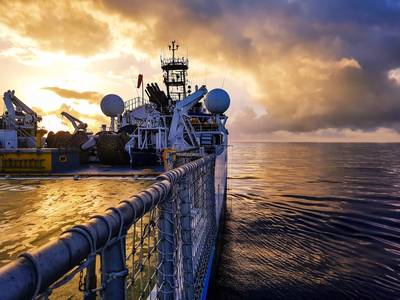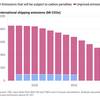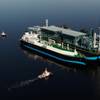Ten new research institutes from Europe, North America and Australia have joined the Nereus Program research partnership, bringing the total to 17.
Launched in September 2011, the program is an international collaboration between The Nippon Foundation and the University of British Columbia with the aim to make comprehensive forecasts of the ocean’s future, the program has grown into one of the world’s largest research initiatives in its field.
Principle investigators from eight out of the 10 newly joined universities and institutes gathered in Tokyo last December to partake in an international symposium titled “Limits of Oceans”. They discussed a range of topics including major effects of climate change on marine ecosystems; seafood dilemma of health benefits vs. health hazards from contaminants; and modern slavery in the fishing industry.
Yohei Sasakawa, Chairman of The Nippon Foundation noted the sense of crisis: “A sustainable ocean is of the utmost importance for people. If current conditions continue, the ocean will only survive 500, 1,000, or at most 2,000 years, which is a blink of the eye in terms of the earth’s history. For a long time, humans thought of the ocean as being unlimited, and we now face a variety of issues including a drastic decline in biodiversity.” He also called for research from a global perspective into what needs to be done for the ocean’s future.
Going forward, the addition of 10 research institutes made possible with additional commitments from the Nippon Foundation in 2016, will allow the program to be more comprehensive in its research scope and be more policy-relevant.
New partners include:
- University of Wollongong (Australia)
- Harvard University (USA)
- University of Washington (USA)
- Arizona State University (USA)
- University of South Carolina (USA)
- Agrocampus Ouest (France)
- Monterey Bay Aquarium (USA)
- Stanford University (USA)
- University of Ottawa (Canada)
- Swiss Federal Institute of Technology Zurich (ETH Zurich, Switzerland)
- Rutgers University (USA)
They will engage in research such as regional fisheries policy, social responsibility of seafood, science communication, up-welling system, ecosystem based approach, the state of blue fish tuna, bycatch, climate related extreme events, marine pollution, and population health and ecological adaptation.
Nereus new Principal Investigators are:
- Agrocampus Ouest (France)
Principal Investigator: Dr. Didier Gascuel. Modelling large scale ecosystem responses to climate change.
- Swiss Federal Institute of Technology Zurich (ETH Zurich, Switzerland) Principal Investigator: Dr. Thomas Frölicher. Extreme climate events and its implications for marine ecosystems and fisheries under climate change.
- Harvard University (USA)
Principal Investigator: Dr. Elsie Sunderland. Modelling global impacts of marine contaminants on marine ecosystems and their implications for public health.
- Arizona State University (USA)
Principal Investigator: Dr. Jack Kittinger. Social implications of Fisheries Improvement Projects (FIPs) for artisanal fisheries, particularly in the developing countries.
- Monterey Bay Aquarium (USA)
Principal Investigator: Dr. Andre Boustany. Management of the multi-national fisheries (e.g. Pacific bluefin tuna) and roles of science in evaluation of alternative policy options.
- Rutgers University (USA)
Principal Investigator: Dr. Malin Pinsky. Adaptation capacity and policies for regional fisheries under climate change and globalization.
- University of South Carolina (USA)
Principal Investigator: Dr. Ryan Rykaczewski. Responses of Eastern Boundary Upwelling ecosystems and fisheries to climate change and other human stressors.
- University of Washington (USA)
Principal Investigator: Mr. Hanson Hosein. Communication strategies for global, cross-boundary ocean issues and social innovation through corporate engagement.
- Wollongong University (Australia) Principal Investigator: Dr. Quentin Hanich. Ocean governance and management policies for South Pacific island nations.
- University of Ottawa (Canada) Principal Investigator: Dr. Laurie Chan. Responses of food systems to ecosystems and socio-economic changes and the impact to health risk among coastal communities in Arctic and the world.
- Stanford University (USA) Principal Investigator: Dr. Larry Crowder. Interacting effects of environmental variability and management on fisheries’ social ecological resilience.












